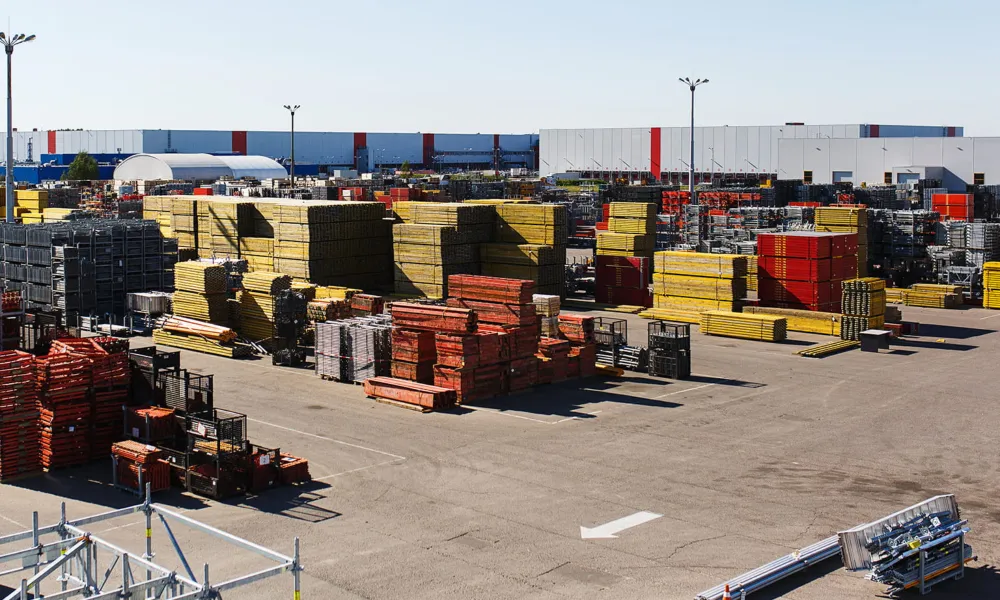
Industrial Outdoor Storage (IOS), often referred to as drop lots, is becoming increasingly popular among retail, logistics, and e-commerce companies looking to improve their operations. It’s said to bring many benefits for businesses.
So, what is industrial outdoor storage? This article will dig into the topic and discuss why it’s gaining popularity. Besides, we can give you advice on what to consider before purchasing the property. Scroll down for more!
IOS, or Industrial Outdoor Storage, is land designated for industrial use. It’s mostly used to store vehicles, trailers, vans, big equipment, containers, and supplies for the long term (more than 72 hours). The property is usually enhanced by installing pavement, surrounding fencing, and floodlighting.
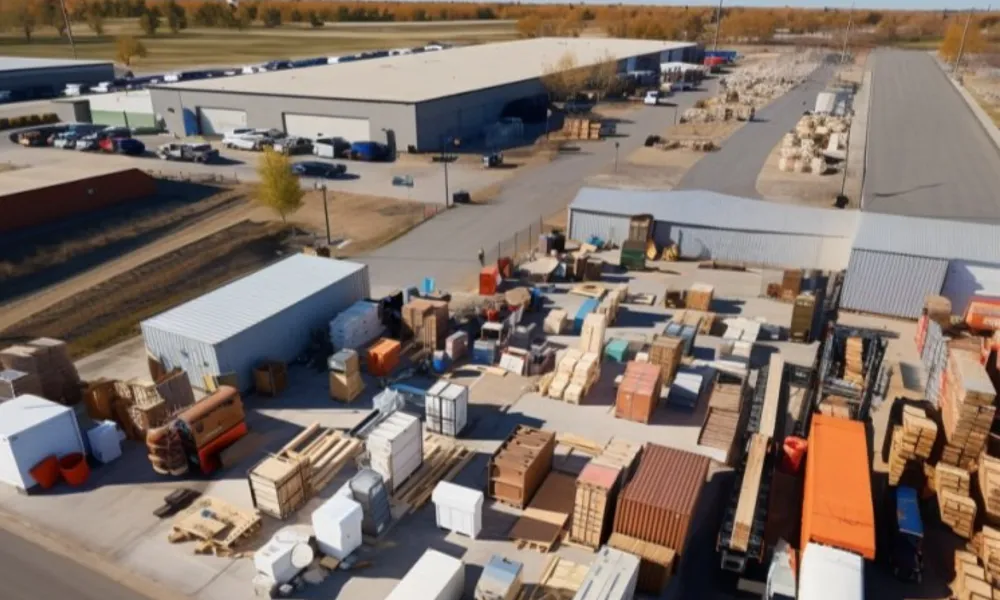
Marcus & Millichap reports that the nation’s growing retail industry is putting a lot of pressure on the nation’s commercial parking shortage. Due to an 85% increase in online sales, the number of delivery vehicles requiring parking spots has surpassed the truck-to-parking-place ratio of 2019, when there were 900 light-duty trucks registered for every commercial parking spot. This congestion led to a record $95 billion in financial losses in 2021 and surged demand for industrial outside storage facilities.
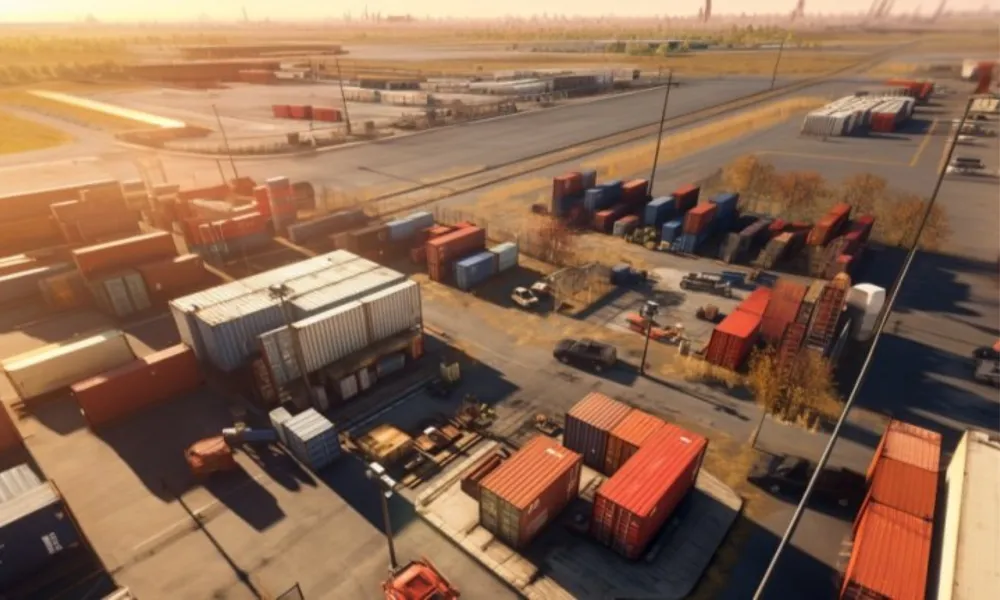
Outdoor industrial storage offers many advantages for businesses in commercial real estate markets, increasing the demand for investors to develop or buy these facilities. Four main benefits of these open-air storage options included:

IOS industrial outdoor storage can replace the building of additional inside warehouse space. It is frequently less expensive to lease outdoor storage spaces, lowering overhead costs. Besides, unlike the indoor storage options, which often call for climate control and elaborate infrastructure, IOS mainly depends on the environment. Thus, it reduces maintenance and utility expenses.
Industrial outside storage is highly adaptable and suits various businesses. Companies don’t need to invest much but can size up or down the space to meet their requirements. Plus, the option’s seasonal flexibility is useful for industries like retail and agriculture, as it allows them to store excess goods during peak seasons and reduce space during slower ones.
IOS industrial storage near manufacturing, distribution, or logistics centers can improve operational efficiency since loading and unloading commodities takes less time and effort. Its easy access to stored goods, machinery, or equipment also leads to speedy retrieval and reduced downtime. Therefore, workflow and productivity are improved.
Regarding safety and security, security measures such as access control systems, surveillance cameras, and fencing can be used to protect inventory and precious assets from theft and damage in industrial outdoor storage spaces. In addition, modern outdoor storage solutions often incorporate weather-resistant options to safeguard assets from natural-element-caused damage.
Investing in industrial outdoor storage real estate can yield financial gains, but it’s crucial to understand potential risks and challenges.
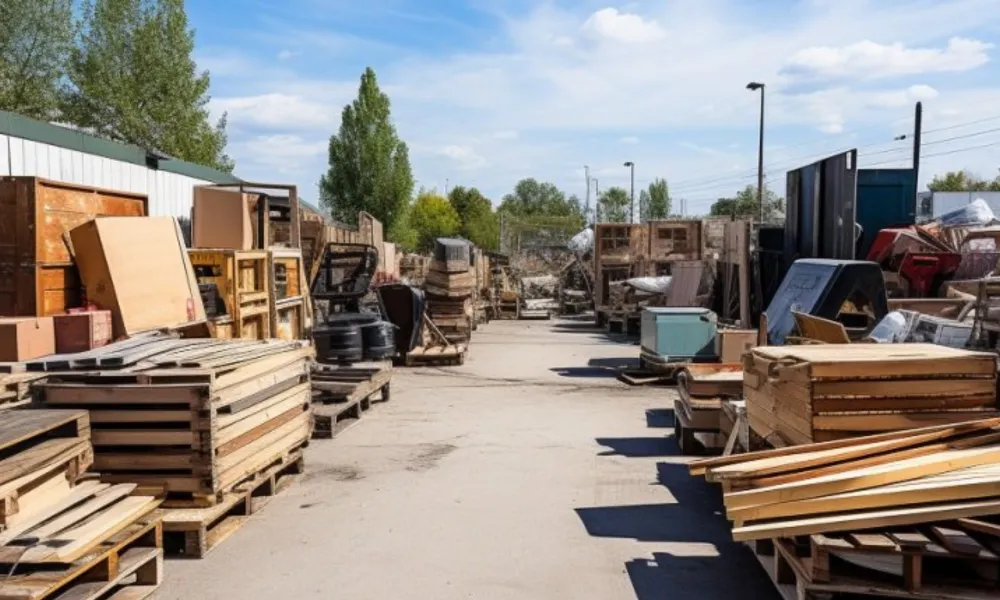
Outdoor storage facilities pose a risk of unauthorized access, theft, and vandalism. Investing in effective security measures such as surveillance cameras, perimeter fencing, well-lit areas, and frequent auditing and patrolling can help reduce this problem.
Rain, sun, wind, and other environmental elements can negatively affect the stored assets. Applying weather-resistant solutions, covering sensitive items, and regular maintenance to spot possible problems early will mitigate the damage.
Degradation and security problems are potential risks of IOS real estate. However, a proactive maintenance plan with a budget for ongoing upkeep, frequent inspections, repairs, and surface care can solve this.
Liability claims and legal problems may arise from accidents or injuries on the property. Thus, mitigation measures, including installing safety procedures, comprehensive insurance, and signage, should be ensured.
There are things to consider before investing in IOS industrial real estate. Let’s figure it out!
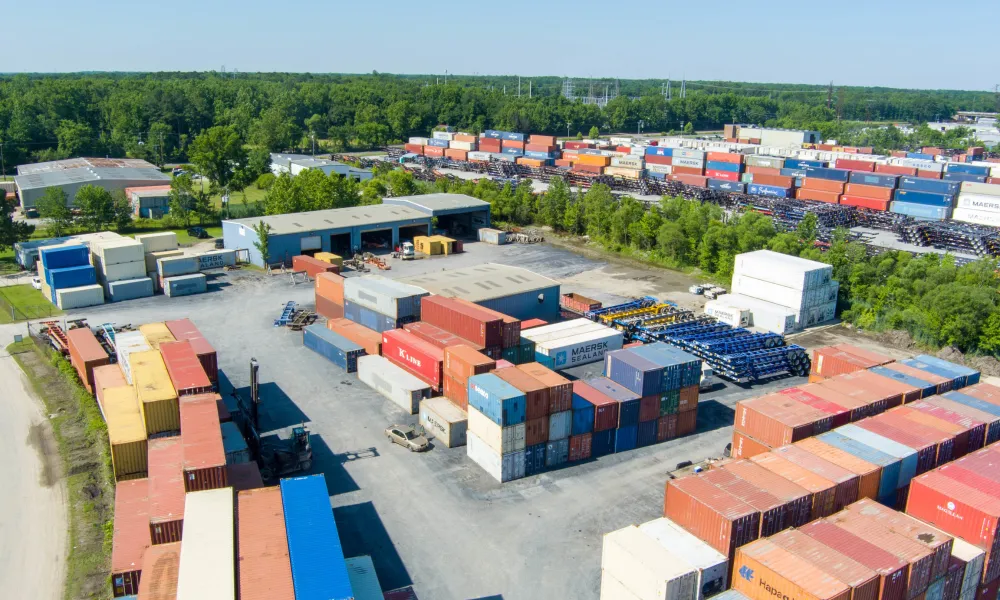
The close proximity to manufacturing centers, main roads, or transportation hubs is considered a strategic location for industrial outside storage. Understanding local demographics and business landscapes and evaluating the demand based on the businesses in the area can also enhance the property’s appeal.
The zoning codes in the area identify the land use. To avoid legal issues, ensure the property’s intended use aligns with the zoning regulations. In many cases, rezoning these sites might not be possible.
In general, properties that are easily accessible to major roads and logistical lines are in higher demand. The industrial outdoor storage real estate located near transportation infrastructure can help businesses save on logistics expenses for potential users or tenants.
Assess the property’s infrastructure, including soil composition, drainage systems, topography, and infrastructure upgrades. Make sure the land is appropriate for heavy machinery. If you want to attract tenants who are worried about security, invest in security measures like access control systems, fences, video cameras, and lighting to secure the property and assets kept on-site.
So, what is industrial outdoor storage? It is the practice of using outside areas on commercial properties to store various business-related supplies, machinery, or assets.
As more and more areas include drop lot language in their regulations, it is becoming commonplace to integrate IOS development and permitting with local zoning ordinances. It can make the permitting process more difficult and increase construction costs. IOS lot development may be impacted by the tendency to move toward near- and onshoring, which would call for improved infrastructure for logistics and transportation, including additional drop lots and facility renovations.
Due to the possibility of large profits, investors and business owners are drawn to the expanding market for industrial outdoor storage. An expert consultant business like Savills can handle the complexity of permits, guaranteeing that facilities fulfill present and future objectives, avoiding costly issues, and guaranteeing long-term success.
Contact Savills Industrial right now for further information!